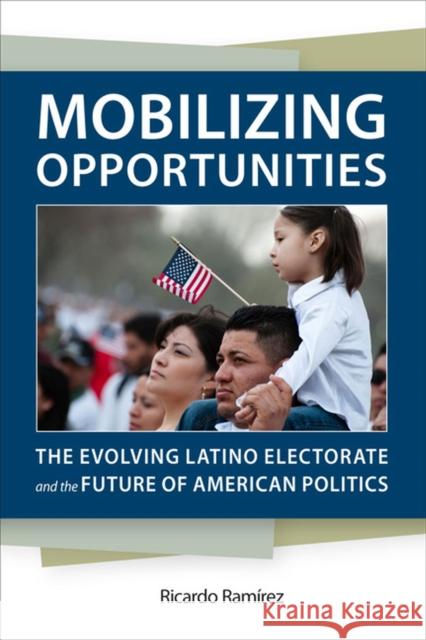Mobilizing Opportunities: The Evolving Latino Electorate and the Future of American Politics » książka
Mobilizing Opportunities: The Evolving Latino Electorate and the Future of American Politics
ISBN-13: 9780813935102 / Angielski / Twarda / 2013 / 192 str.
Mobilizing Opportunities: The Evolving Latino Electorate and the Future of American Politics
ISBN-13: 9780813935102 / Angielski / Twarda / 2013 / 192 str.
(netto: 222,53 VAT: 5%)
Najniższa cena z 30 dni: 231,74
ok. 30 dni roboczych.
Darmowa dostawa!
The growth of the Latino population is the most significant demographic shift in the United States today. Yet growth alone cannot explain this population's increasing impact on the electorate; nor can a parsing of its subethnicities. In the most significant analysis to date on the growing political activation of Latinos, Ricardo Ramirez identifies when and where Latino participation in the political process has come about as well as its many motivations. Using a state-centered approach, the author focuses on the interaction between demographic factors and political contexts, from long-term trends in party competition, to the resources and mobilization efforts of ethnic organizations and the Spanish-language media, to the perception of political threat as a basis for mobilization.The picture that emerges is one of great temporal and geographic variation. In it, Ramirez captures the transformation of Latinos' civic and political reality and the engines behind the evolution of this crucial electorate. Race, Ethnicity, and Politics
There is a lot of talk--in the public sphere as well as among scholars--about how important Latino voters are to political candidates, but most of the discussion is based on undertheorized models of political activation. Ramírezs book presents a sophisticated argument about both the causes and the future of Latino political power in the United States. Mobilizing Opportunities is destined to become the most important book in Latino politics for the next generation.- Jane Junn, University of Southern California, coauthor of The Politics of Belonging: Race, Public Opinion, and ImmigrationMobilizing Opportunities takes several essential steps in helping us to understand whether, where, how, and why the perennially sleeping giant of the Latino electorate is stirring into wakefulness and may soon have a huge impact on American politics. Ramírez places individuals within their crucial political contexts of states and other political jurisdictions; he shows how the media, political parties, and organizations mobilize potential political actors; he attends to variation among Latinos and their political settings; and he makes it clear why cross-sectional analyses do not suffice in our rapidly changing political environment. Each of these moves is a big step forward, and together they make for a really valuable and interesting book.- Jennifer Hochschild, Harvard University, coauthor of Creating a New Racial Order: How Immigration, Multiracialism, Genomics, and the Young Can Remake Race in AmericaRamírezs compelling book on Latino voter mobilization reminds us that demographics are not destiny, and that the engagement of prospective voters is shaped not just by national trends but by distinct incentives and disincentives in state and local contexts. Its a critical roadmap to Latino political engagement, how it varies across key states, and why.- Michael Jones-Correa, Cornell University, coauthor of Latinos in the New Millennium: An Almanac of Opinion, Behavior, and Policy Preferences











